Since its debut in 1971, Disney’s Electrical Water Pageant has captivated guests with its twinkling lights, upbeat music, and enchanting displays on the waters of Bay Lake and Seven Seas Lagoon. This unique nighttime spectacle has become a beloved tradition at Walt Disney World, entertaining millions of visitors over its 50+ year history.
The Birth of a Classic
The idea for the Electrical Water Pageant originated during the early planning stages of Walt Disney World. The project team, tasked with creating nighttime entertainment for hotel guests after Magic Kingdom closed, sought something that would be both innovative and captivating. Disney Legend and Imagineer Marc Davis, known for his work on iconic attractions like the Enchanted Tiki Room and Pirates of the Caribbean, was brought on to help conceptualize this new show.
Initially, the show was envisioned as a parade with a Fantasia theme, but it soon evolved into a more versatile production that could tell various stories through glowing, animated scenes on the water. Disney Legend Bob Jani played a crucial role in bringing this vision to life. He capitalized on the vast, dark spaces of Walt Disney World’s property, using the natural lack of city lights as the perfect backdrop for the illuminated show.
The Electrical Water Pageant officially debuted on October 24, 1971, just days before the formal dedication of Walt Disney World. That evening, guests gathered along the shores of Disney’s Polynesian Village Resort, marveling as the pageant’s patriotic finale lit up the night sky, accompanied by fireworks.
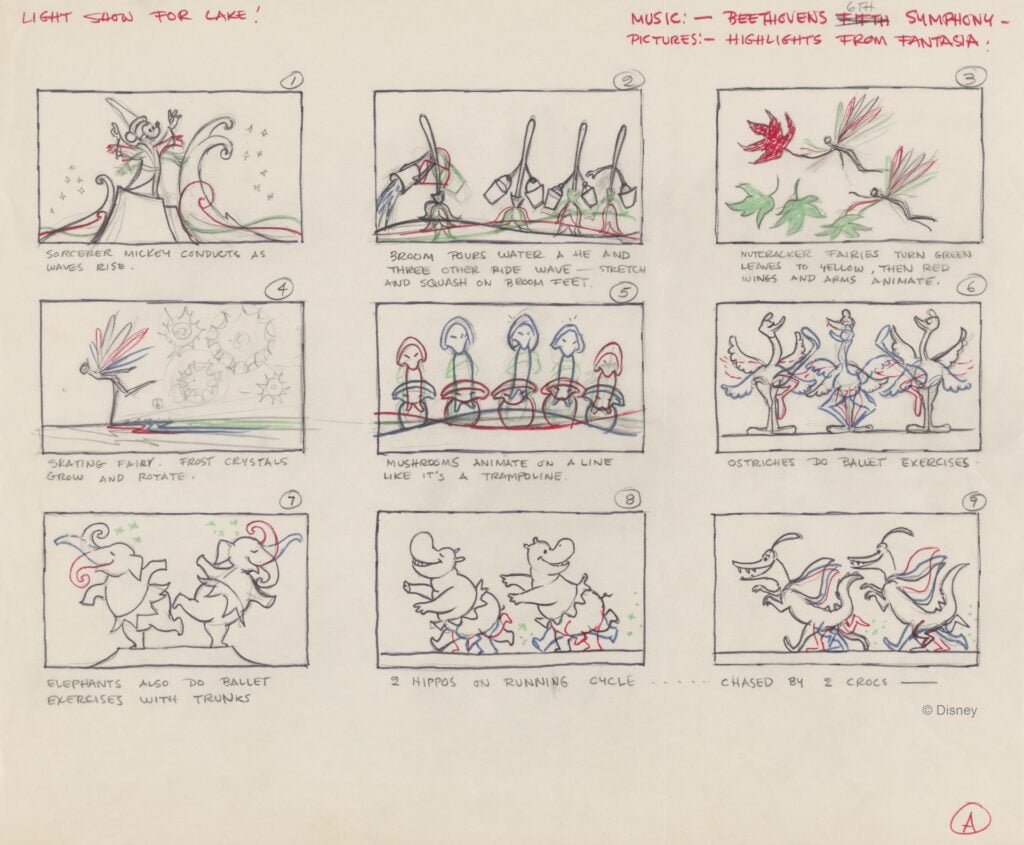
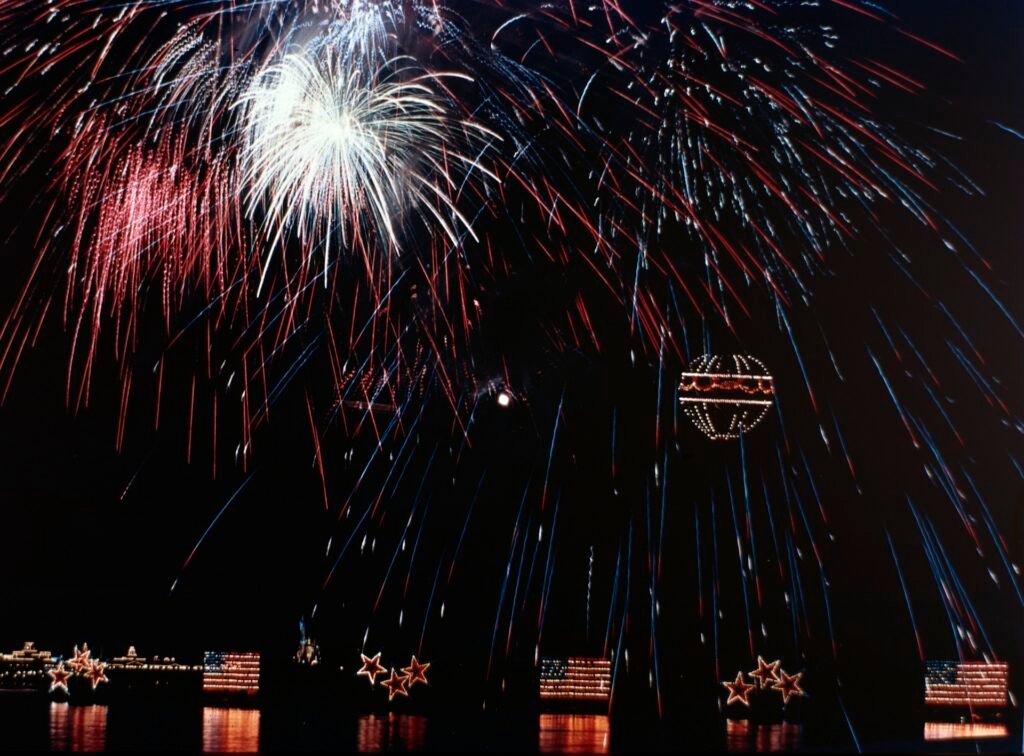
The Magic Behind the Scenes of Disney’s Electrical Water Pageant
The magic of the Electrical Water Pageant comes to life on two 456-foot barges equipped with 25-foot-tall screens. Each screen is adorned with twinkling lights that flash on and off in sync with the music, creating the illusion of characters and scenes dancing across the water. The show was the first to introduce guests to the “electro-synthe-magnetic musical sounds” of the iconic tune “Baroque Hoedown,” composed by Gershon Kingsley and Jean-Jacques Perrey. This same tune later became the theme of the Main Street Electrical Parade, which debuted at Disneyland in 1972.
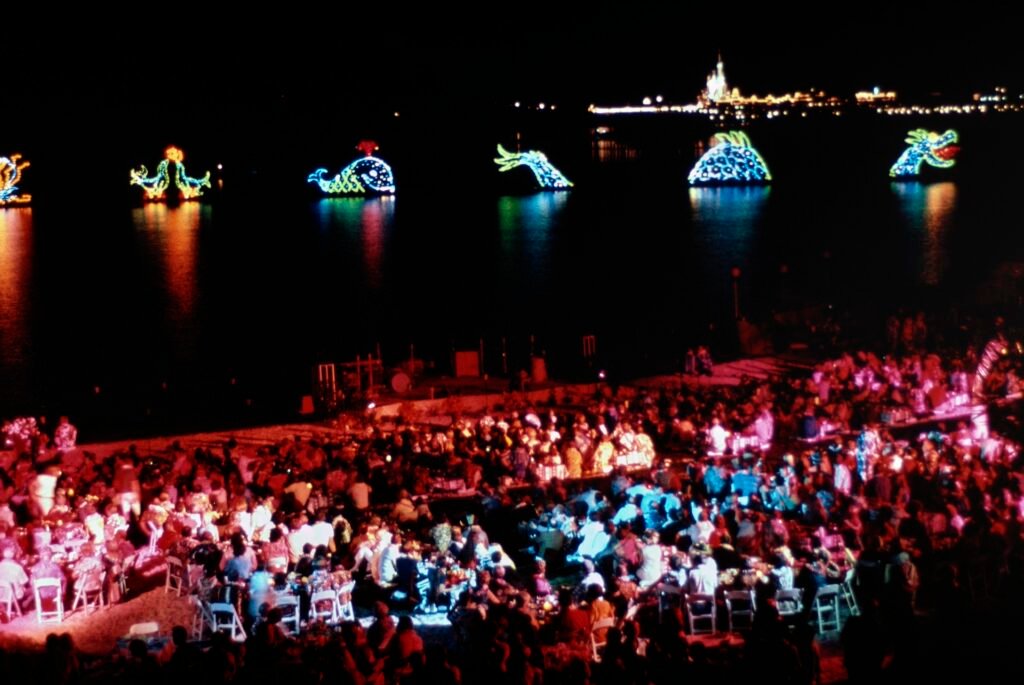
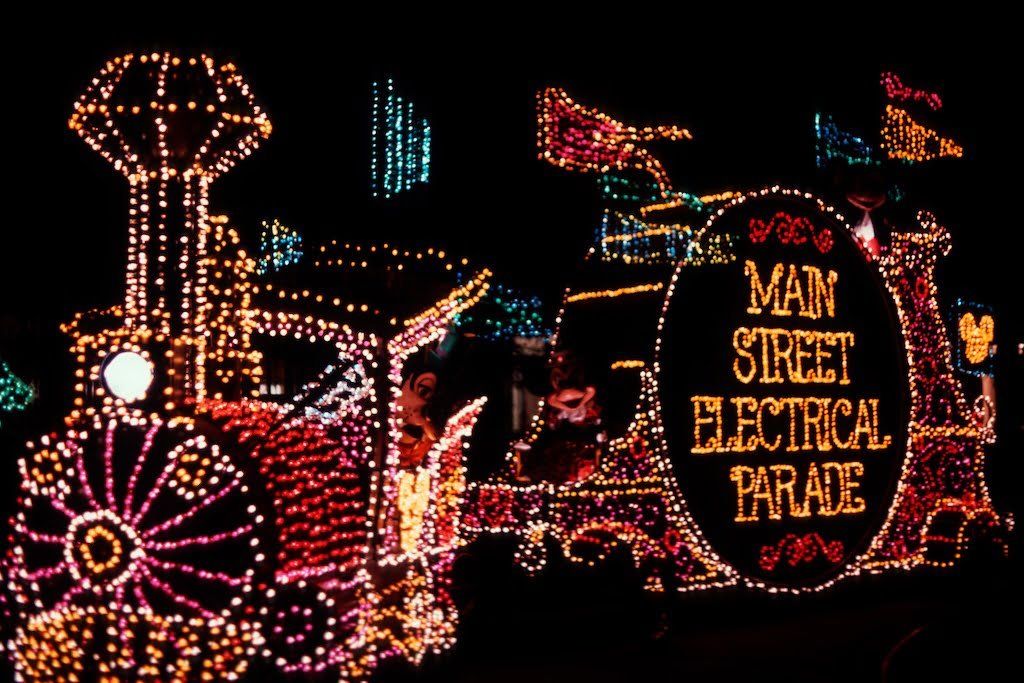
A Legacy That Sparked a Parade
The popularity of the Electrical Water Pageant inspired Disney to create the Main Street Electrical Parade, which used similar light-up technology and the same musical score. The parade became a fixture at Disneyland and later at Disney World and Disneyland Paris, further cementing the legacy of the original water pageant.
Over the years, the Electrical Water Pageant has undergone various updates, including the addition of new music and characters. Notably, before Ariel from The Little Mermaid became a Disney icon, a trio of red-headed mermaids were featured in the show. The pageant has also included special scenes to commemorate significant anniversaries at Walt Disney World, such as the 50th Anniversary celebration.
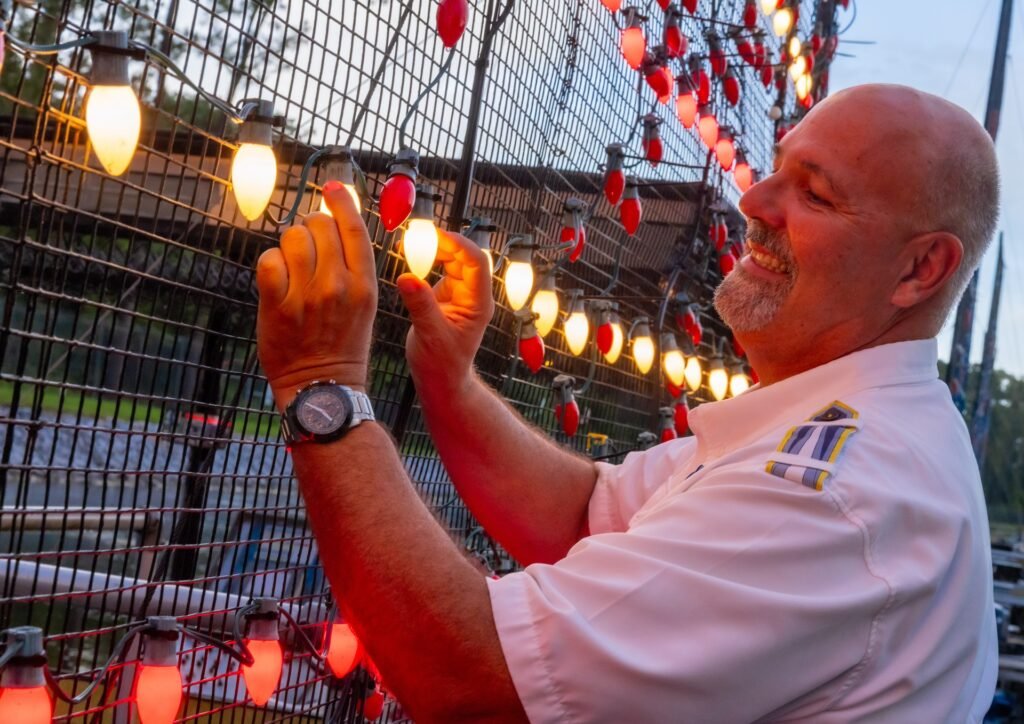
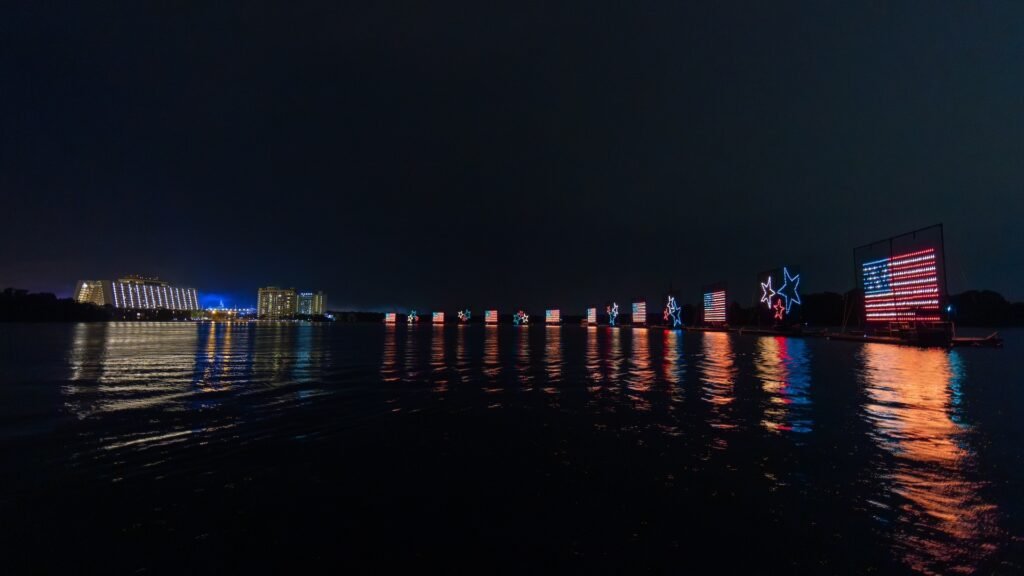
Keeping the Tradition of Disney’s Electrical Water Pageant Alive
Today, a dedicated team of five Disney Transportation cast members operates the Electrical Water Pageant, guiding the glowing barges across the waters every night. Many of these cast members have been part of the show for decades, taking pride in continuing this cherished tradition.
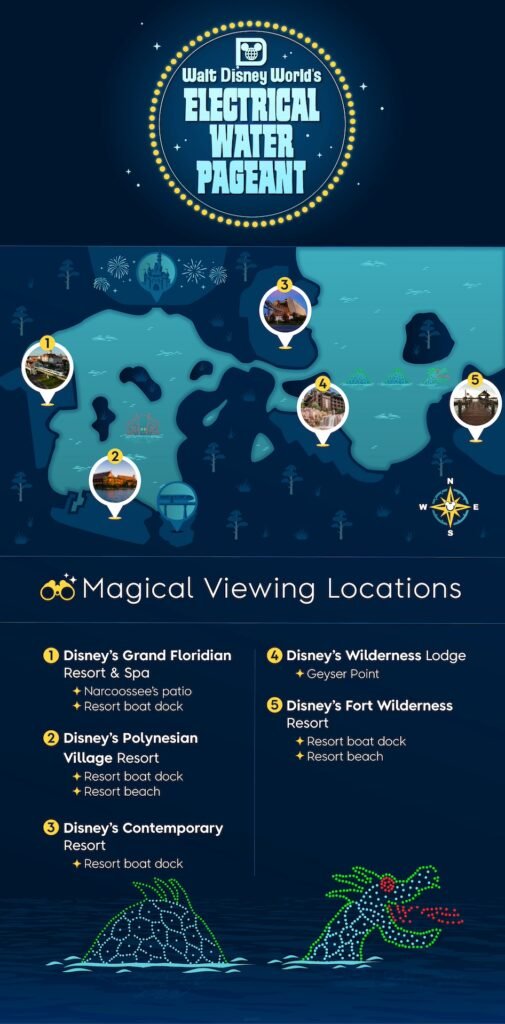
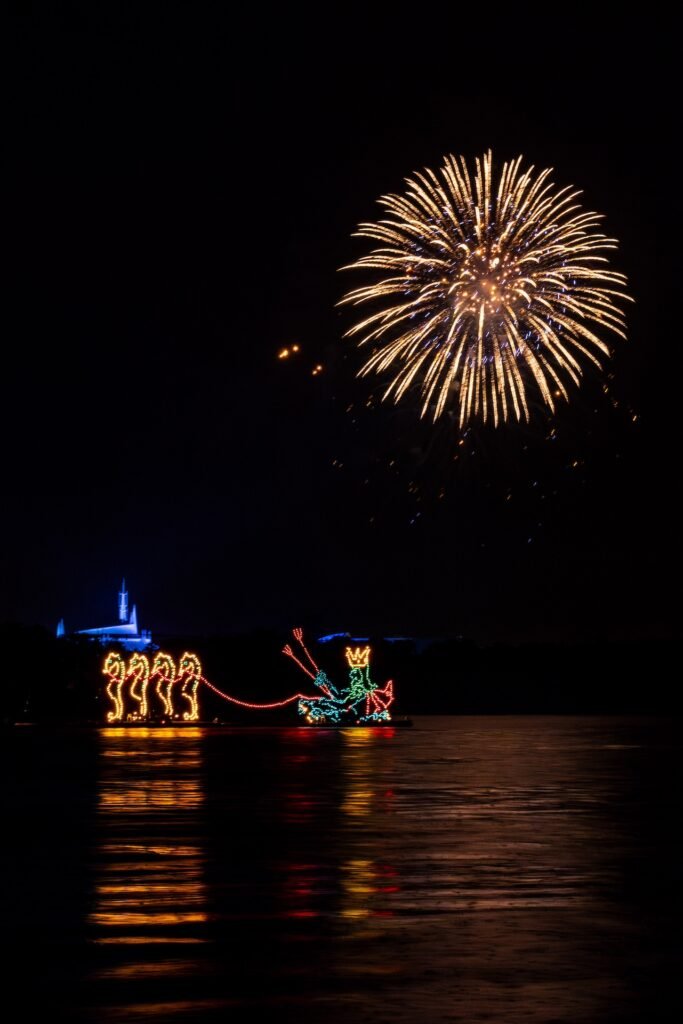
For those looking to catch a glimpse of the Electrical Water Pageant, some of the best viewing spots include the patio at Narcoossee’s and the boat dock at Disney’s Grand Floridian Resort & Spa, the boat dock at Disney’s Contemporary Resort, the beach and boat dock at Disney’s Polynesian Village Resort, Geyser Point Bar & Grill at Disney’s Wilderness Lodge, and the beach and boat dock at Disney’s Fort Wilderness Resort & Campground.
From its humble beginnings to its status as a beloved staple of Walt Disney World, the Electrical Water Pageant remains a testament to Disney’s commitment to creating magical experiences that endure through the decades.
Check back here at MainGatePass.com and follow us on X (Twitter) for the latest Disney Parks news & updates.



